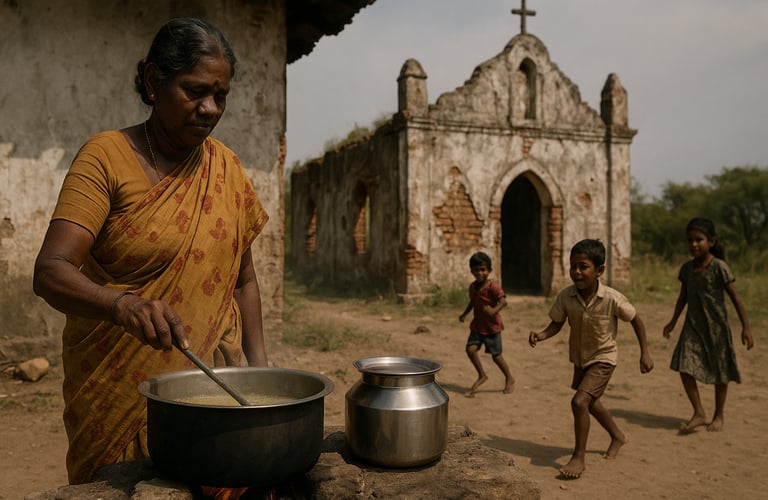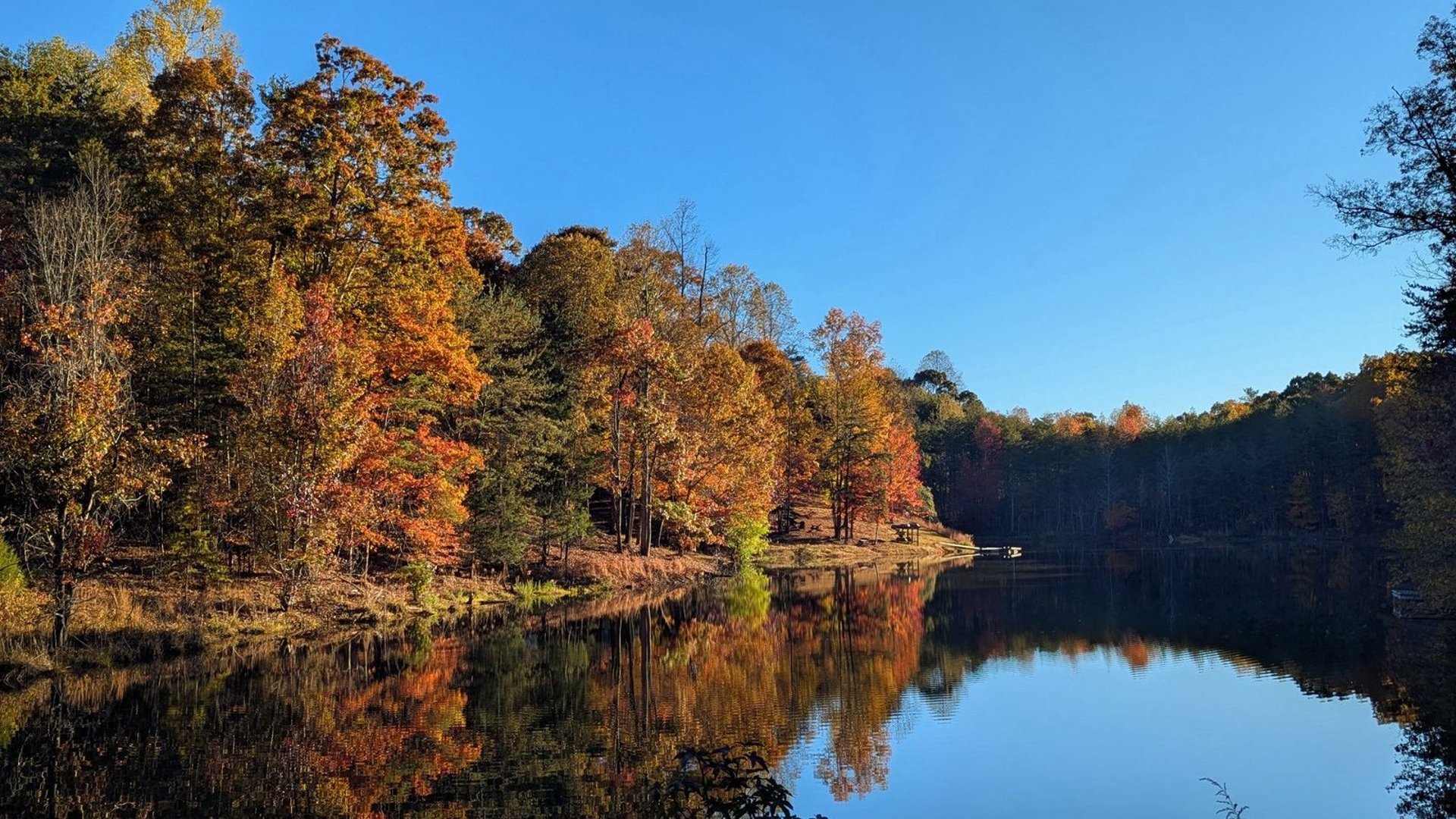The Hands That Remembered to Thank
A tsunami survivor’s humble community kitchen becomes a sacred space of gratitude—where giving credit, like rising dough, reshapes loss into lasting purpose.
TALES AND TRAVEL
Wandering Armenian
6/27/20254 min read


The Hands That Remembered to Thank
Back in the day, in the early summers of 2006, I had the opportunity to visit tsunami affected regions in the southern states of India. Back then I was serving as a junior administrator with one of the well-respected humanitarian agencies in the country. Our field visit aimed at carrying out a rapid assessment or sort of impact study on the aid assistance provided to the affected families. And because of this we divided ourselves into small teams and walked around the scattered fishing villages and towns along the shore, most of which still carried the scars of that painful night.
And as I walked along the dusty sand filled streets of a quiet coastal village near Nagapattinam, Tamil Nadu, in April 2006-one year after the wave had swallowed everything but the hope of this middle-aged Pattinawar widow, from the fisherwoman community. She looked very calm and composed and once could see how time and sweat had scourged the beauty of her face. And when I spoke to her, it was then I learnt that she had lost more than that by yet very content at heart and I will tell you why.
Her name was Annapoorani, a name once whispered with reverence by her neighbours, meaning the one who feeds with grace. When I met her, she was stirring a large pot of tamarind Rassam under a tin-roofed shed, barefoot, her saree frayed at the hem, and her face glowing with the humility of someone who had tasted both the salt of the sea and the sweetness of survival.
“Sir, I never liked cooking,” she said, in mellow voice without even raising her sight at me or my colleague Anand Chayapati. “It was just another duty. Something I did because my mother did it. Because the children needed to eat. No joy in it.” That is what she told us. As she continued wiping her sweat off her face with the end of her sari, as the day was too hot although the sun had nearly gone down, and we slowly sipping some water from our bottles, even the water had turned warm walking around in the sun.
She goes on to tell us that her village had been swept away on December 26, 2004, when the sea, in one uninvited surge, erased homes, names, and the very rhythm of life. She lost her husband and her two youngest children. For months, she said, she ate only when others forced her to. As her losses and sorrow seemed to have taken away her appetite. She lived in one of the Internally Displaced people’s camps by the main road, which was managed by a local church and finally assisted by some private donors. And with strangers around, clinging only to the habit of boiling rice-even when she could not bring herself to eat it. And during our conversation, she went silent as to say she had transited into the past.
And then suddenly in bit of a choaking but convincing voice she exclaimed “I was like King Nebuchadnezzar,” referencing a passage she had heard a local pastor share during one of the Friday believer gatherings. “Demanding answers, angry that no one could explain why this happened.”
After a bit of deep silence as to say she was trying to gather her broken thoughts together she told us how the Book of Daniel had come to her like a whisper through the wall of that crowded relief shelter. Someone by the name of Murali Anna, who lived in the space next to hers in the camp had been reading the book of Daniel 2 aloud one night in dim light of the Kerosine lantern that kept flickering because of the breeze. She had heard of a king disturbed by dreams, threatening to kill all the wise men unless someone told him the dream and its meaning. Then Daniel stepped forward-not with pride or claim-but with a plea and a prayer.
“No wise man, enchanter, magician or diviner can explain to the king the mystery he has asked about, but there is a God in heaven who reveals mysteries.”-Daniel 2:27-28
And you know what Sir, when I heard that and sat up, she said, “because after that agonizing night of December 26,2004, I had blamed everyone -God, the sea, even the fish. But that night, “I realized the only wisdom worth trusting comes from the God who sees what we cannot.”
And she says, I began to pray-not for answers, but for direction. In the mornings, when others lined up for relief rice and rations, she found herself offering to cook for them. She borrowed vessels, lit a fire with borrowed firewood. And slowly, something changed.
“I began to give credit,” she told me, wiping her eyes with the edge of her sari. “Not to my hands, not to the recipes I remembered- what my mother cooked some six and half decades ago, not even to the compliments. But to the God who gave me breath-and taste-and the ability to serve.”
She used her compensation money not for a TV or a rebuilt home, but for a community kitchen, right there near the salt-worn chapel. There, each day, she cooked meals for widows, orphans, and workers who still sifted sand looking for belongings. She did not call herself a chef. She did not even call it a ministry. “I just bake and stir,” she smiled. “But I do it remembering Daniel. That when the answer comes, when the meal is served, we must give credit to the One who made it possible. Even in pain.”
Annapoorani’s food was not grand like that of a modern way side Dhaba (Motel). But it carried something that required no translation: comfort, humility, and quiet gratitude. The kind that changes lives-not with power, but with presence.
Reflection:
As we (myself and Anand) walked back to our Choultry, (place to spend the night resting), where the rest of the team was putting up, I began to reflect on myself. There is so much to learn from Annapoorani. For as a home baker, “giving credit” might seem unnecessary. After all, it is “just cooking.” But in the hands of someone like Annapoorani, baking became an altar, a prayer, a thank-you whispered over kneaded dough. As Daniel showed in the courts of a violent king, wisdom and peace begin when we acknowledge where our strength truly comes from. In kitchens and crises alike, giving credit- ‘not to ourselves, but to God’-shapes not just what we make, but who we become.

